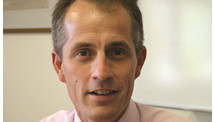Olympian Oscar Pistorius today denied that he willfully killed his girlfriend, telling a South African court that he shot the woman through his bathroom door because he believed she was an intruder.
Pistorius, 26 and a double-amputee Olympian, was charged today with premeditated murder, or a Schedule 6 offense, which under South African law limits his chances for parole if convicted.
"I fail to understand how I could be charged with murder, let alone premeditated murder because I had no intention to kill my girlfriend," Pistorius said in a statement, read by his lawyer.
"I deny the accusation," he said. "Nothing can be further from the truth that I planned the murder of my girlfriend."
The court adjourned today with no decision on his bail and the hearing is scheduled to resume Wednesday.
Read Oscar Pistorius' Full Statement to the Court
PHOTOS: Paralympic Champion Charged in Killing
Pistorius, who gained worldwide fame for running on carbon-fiber blades and competing against able-bodied runners at the Olympics, is accused of shooting his girlfriend, Reeva Steenkamp, at his gated home in Pretoria, South Africa, Feb. 14.
In a statement read by his lawyer today, the runner said he and Steenkamp went to bed together before he was awoken by a noise he thought was an intruder coming from the bathroom.
Filled with a "sense of terror," he removed the 9-mm pistol he kept hidden under his bed and, without putting on his prosthetic legs, began shooting through the bathroom door, according to his statement.
Oscar Pistorius: Was Shooting Premeditated? Watch Video
Conflicting Theories Muddle Oscar Pistorius Murder Case Watch Video
Oscar Pistorius Allegedly Fought the Night of Shooting Watch Video
"I was scared and didn't switch on the light," he said. "I got my gun and moved towards the bathroom. I screamed at the intruder because I did not have my legs on. I felt vulnerable. I fired shots through the bathroom door and told Reeva to call police.
"I walked back to the bed and realized Reeva was not in bed. It's then it dawned on me it could be her in there," he said.
That's when he realized Steenkamp was not in bed, he said in the statement. Fearing she was inside the bathroom, he says, he broke down the door using a cricket bat and carried the woman outside, where he called for help, and she soon died.
Excerpts of Prosecutor's Case Against Pistorius
Pistorius appeared in court today for the first time since his Valentine's Day arrest, as prosecutors laid out their case, insisting that the runner could not have mistaken his girlfriend for an intruder.
"[Pistorius] shot and killed an innocent woman," Gerrie Nel, the senior state prosecutor, said in court, adding that there is "no possible explanation to support" the notion that Pistorius thought Steenkamp was an intruder.
Prosecutors said, "There is no possible explanation to support his report that he thought that it was a burglar. Even [in] his own version, he readied himself, walked to the bathroom with the clear intention and plan to kill the 'burglar' and did so whilst the burglar was harmless and contained in a toilet. This in itself also constitutes premeditated murder of a 'defenseless burglar.''
Pistorius said he and Steenkamp were in his bedroom the night before Valentine's Day, when she
was doing yoga exercises and he was in bed watching television. "My prosthetic legs were off," according to his statement. "We were deeply in love and I could not be happier. I
know she felt the same way. She had given me a present for Valentine's Day
but asked me only to open it the next day.
"After Reeva finished her yoga exercises she got into bed and we both fell
asleep."
Later, police responding to neighbors' calls about shouting and gunshots at Pistorius' home in the guarded and gated complex in the South African capital discovered Steenkamp's body. A 9-mm pistol was recovered at the home.
Prosecutors said Steenkamp had arrived at the house with the expectation of spending the night with Pistorius. They said that Steenkamp was shot while in the bathroom, which is about 21 feet from the main bedroom, and that the two rooms are linked by a passage. The door to the toilet was broken down from the outside, prosecutors said, implying that the bathroom door had been locked.
Prosecutors believe it's a case of premeditated murder because, they say, Pistorius had to stop, put on his prosthetic legs, grab a gun and then walk 21 feet to a bathroom.
The premeditated murder charge means that he would likely be sentenced to life in prison if convicted, and that he is likely to be denied bail.














